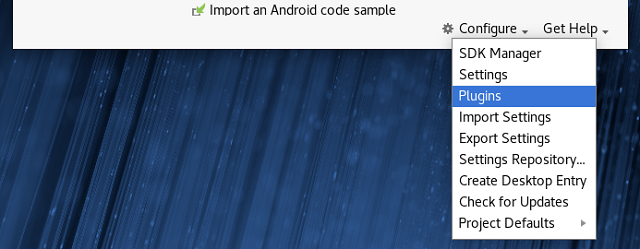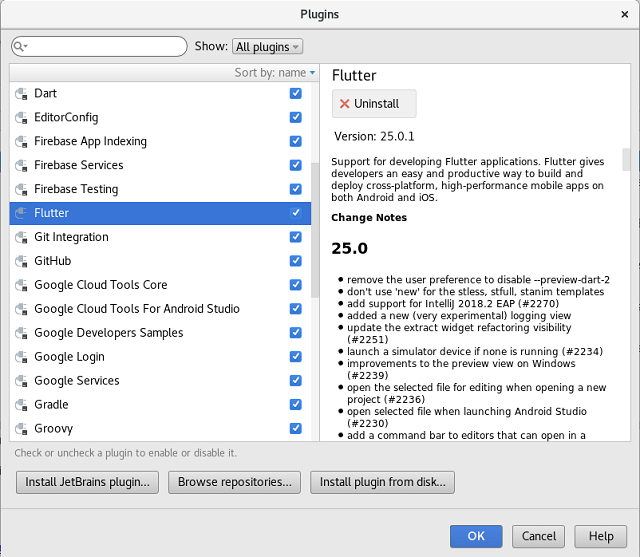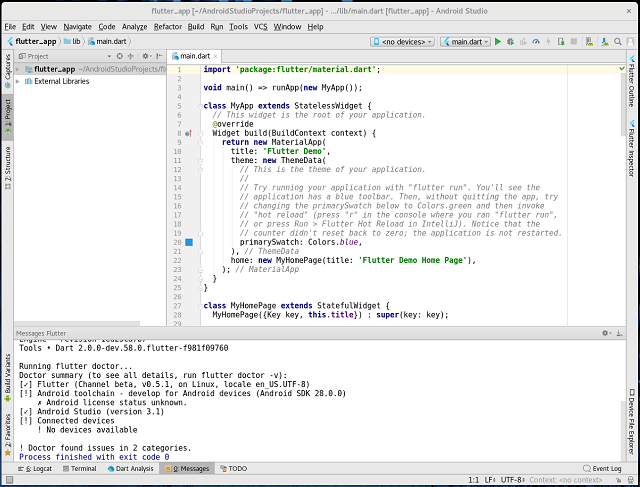I wrote a tutorial about the remote connection in LibreOffice, see this article.
The main problem with LibreOffice development is the changes.
Now the feature Open remote is not working.
The bug is officially recognized and represented, see the page.
They inform us, see comment 31:
John R Mead 2017-12-17 22:43:03 UTC
Well, it still doesn't work with LibreOffice Version: 6.0.0.0.beta1 (x64); I'm not providing screenshots this time since it's identical in everyway to my previous attempts. At the end of all the copy/pasting between LibreOffice and my browser to get all the relevant permissions, when I finally make the attempt to connect, I get the same message: The specified device is invalid.
Current system configuration of potentially relevant software:
Windows 10 Professional (x64) Version 1709 (build 16299.125)
Java 9.0.1
Microsoft - OneDrive version 17.25.1.0 (x64)
LibreOffice Version: 6.0.0.0.beta1 (x64)
It's a common practice to see open-source software with bugs, most bugs are already available to users to avoid problems.
Most backup bugs are authentication and changes in development.
tutorials, tips, tricks, commands, programming, linux, windows, database, sql, python, programming language, Fedora, drawing, painting, tutorial, tutorials
Thursday, September 13, 2018
Monday, September 10, 2018
Fedora 28 : The Revel framework with golang.
The development team has a very effective text:
A high productivity, full-stack web framework for the Go language.
They used this words:
Revel provides routing, parameter parsing, validation, session/flash, templating, caching, job running, a testing framework, and even internationalization. I tested it yesterday and today I will show you how effective it is.
This framework is very easy to install and use it with Fedora 28.
I could say this is like django framework with the temptation style.
Let's start with a simple example into a folder created by me and named gocode:
Let's add a golang variable named greeting to app.go and Index.html files:
This is result of two screenshots from start install and after I change with the variable greeting.
A high productivity, full-stack web framework for the Go language.
They used this words:
Revel provides routing, parameter parsing, validation, session/flash, templating, caching, job running, a testing framework, and even internationalization. I tested it yesterday and today I will show you how effective it is.
This framework is very easy to install and use it with Fedora 28.
I could say this is like django framework with the temptation style.
Let's start with a simple example into a folder created by me and named gocode:
[mythcat@desk ~]$ mkdir ~/gocode
[mythcat@desk ~]$ export GOPATH=~/gocode
[mythcat@desk ~]$ echo export GOPATH=$GOPATH >> ~/.bash_profile
[mythcat@desk ~]$ cd gocode/
[mythcat@desk gocode]$ go get github.com/revel/revel
[mythcat@desk gocode]$ ls
pkg src
[mythcat@desk gocode]$ go get github.com/revel/cmd/revel
[mythcat@desk gocode]$ ls
bin pkg src
[mythcat@desk gocode]$ export PATH="$PATH:$GOPATH/bin"
[mythcat@desk gocode]$ revel helpDEBUG 19:24:09 revel server.go:27: arguments by adding nil
~
~ revel! http://revel.github.io
~
usage: revel command [arguments]
The commands are:
new create a skeleton Revel application
run run a Revel application
build build a Revel application (e.g. for deployment)
package package a Revel application (e.g. for deployment)
clean clean a Revel application's temp files
test run all tests from the command-line
version displays the Revel Framework and Go version
Use "revel help [command]" for more information.
[mythcat@desk gocode]$ ls
bin pkg src
[mythcat@desk gocode]$ revel new myapp
DEBUG 19:38:50 revel server.go:27: RegisterServerEngine: Registered engine
~
~ revel! http://revel.github.io
~
Your application is ready:
/home/mythcat/gocode/src/myapp
You can run it with:
revel run myapp
[mythcat@desk gocode]$ revel run myapp
DEBUG 19:39:15 revel server.go:27: RegisterServerEngine: Registered engine
~
~ revel! http://revel.github.io
~
Trying to build with myapp (0x0,0x0)
DEBUG 19:39:15 revel module.go:152: Sorted keys section=module keys=module.static
...
[mythcat@desk gocode]$ cd src/myapp/app/
[mythcat@desk app]$ ls
controllers init.go routes tmp views
[mythcat@desk app]$ cd controllers/
[mythcat@desk controllers]$ ls
app.go
[mythcat@desk controllers]$ cat app.go
package controllers
import (
"github.com/revel/revel"
)
type App struct {
*revel.Controller
}
func (c App) Index() revel.Result {
return c.Render()
}
[mythcat@desk App]$ cat Index.html Let's add a golang variable named greeting to app.go and Index.html files:
[mythcat@desk controllers]$ cat app.go
package controllers
import (
"github.com/revel/revel"
)
type App struct {
*revel.Controller
}
func (c App) Index() revel.Result {
greeting := "Fedora and revel framework !"
return c.Render(greeting)
} This is result of two screenshots from start install and after I change with the variable greeting.

Posted by
Cătălin George Feștilă
 Labels:
2018,
Fedora,
Fedora 28,
go,
golang,
linux,
linux tools,
revel,
tutorial,
tutorials,
web development
Labels:
2018,
Fedora,
Fedora 28,
go,
golang,
linux,
linux tools,
revel,
tutorial,
tutorials,
web development
Thursday, August 9, 2018
Fedora 28 : Linux application with node.js and Electron packager.
Today I make a tutorial about how to use node.js and Electron packager to create cross-platform applications.
The tutorial show you how to create Windows, Linux and Mac OS cross-platform applications and can be found here.
This is result of running the linux application with Fedora 28:
The tutorial show you how to create Windows, Linux and Mac OS cross-platform applications and can be found here.
This is result of running the linux application with Fedora 28:
Posted by
Cătălin George Feștilă
 Labels:
2018,
electron,
Fedora,
Fedora 28,
javascript,
linux,
linux tools,
node.js,
tutorial,
tutorials
Labels:
2018,
electron,
Fedora,
Fedora 28,
javascript,
linux,
linux tools,
node.js,
tutorial,
tutorials
Thursday, August 2, 2018
Fedora 28 : Godot example with linux .
Today I tested a simple example with the game engine named Godot version 3.0.6.
It was created on a Windows 8.1 operating system and exported as a linux application.
I moved the two files to the Fedora 28 operating system.

It was created on a Windows 8.1 operating system and exported as a linux application.
I moved the two files to the Fedora 28 operating system.
[mythcat@desk Godot_test_001]$ ll
total 41752
-rw-rw-r--. 1 mythcat mythcat 41092 Aug 2 18:34 Godot_test_001.pck
-rwxrwxr-x. 1 mythcat mythcat 42707653 Aug 2 18:34 Godot_test_001.x86_64
[mythcat@desk Godot_test_001]$ ./Godot_test_001.x86_64
OpenGL ES 3.0 Renderer: Mesa DRI Intel(R) Ivybridge Desktop
Mono: Initializing module...
The assembly mscorlib.dll was not found or could not be loaded.
It should have been installed in the `/usr/lib/mono/4.5/mscorlib.dll' directory.[root@desk mythcat]# dnf install mono-core.x86_64
Last metadata expiration check: 1:22:05 ago on Thu 02 Aug 2018 05:30:05 PM EEST.
Dependencies resolved.
...
Installed:
mono-core.x86_64 4.8.0-14.fc28 libgdiplus.x86_64 5.6-1.fc28
mono-data.x86_64 4.8.0-14.fc28 mono-data-sqlite.x86_64 4.8.0-14.fc28
mono-extras.x86_64 4.8.0-14.fc28 mono-mvc.x86_64 4.8.0-14.fc28
mono-wcf.x86_64 4.8.0-14.fc28 mono-web.x86_64 4.8.0-14.fc28
mono-winforms.x86_64 4.8.0-14.fc28
Complete![mythcat@desk Godot_test_001]$ ./Godot_test_001.x86_64
OpenGL ES 3.0 Renderer: Mesa DRI Intel(R) Ivybridge Desktop
Mono: Initializing module...
Mono: Runtime initialized
Mono: INITIALIZED
Posted by
Cătălin George Feștilă
 Labels:
2018,
Fedora,
Fedora 28,
game development,
game engine,
Godot,
linux,
linux tools,
tutorial,
tutorials
Labels:
2018,
Fedora,
Fedora 28,
game development,
game engine,
Godot,
linux,
linux tools,
tutorial,
tutorials
Wednesday, August 1, 2018
Fedora 28 : Unusual arguments for the dnf command.
Today I will introduce you in this tutorial some more unusual arguments for the dnf command.
get detailed information of a package can be viewed with the ‘info’ argument;
allows us to see what has happened to our Linux system over time, and even undo, redo, or roll back a transaction;
take actions will be quicker with the ‘makecache’ argument
list all packages that are currently installed on your Linux system;
- first is check which package provides that file;
[root@desk mythcat]# dnf provides /etc/httpd/conf/httpd.conf
Last metadata expiration check: 0:23:46 ago on Wed 01 Aug 2018 09:31:44 AM EEST.
httpd-2.4.34-3.fc28.x86_64 : Apache HTTP Server
Repo : @System
Matched from:
Filename : /etc/httpd/conf/httpd.conf
httpd-2.4.34-3.fc28.x86_64 : Apache HTTP Server
Repo : updates
Matched from:
Filename : /etc/httpd/conf/httpd.conf
httpd-2.4.33-2.fc28.x86_64 : Apache HTTP Server
Repo : fedora
Matched from:
Filename : /etc/httpd/conf/httpd.conf[root@desk mythcat]# dnf info httpd
Last metadata expiration check: 0:29:01 ago on Wed 01 Aug 2018 09:31:44 AM EEST.
Installed Packages
Name : httpd
Version : 2.4.34
Release : 3.fc28
Arch : x86_64
Size : 4.2 M
Source : httpd-2.4.34-3.fc28.src.rpm
Repo : @System
From repo : updates
Summary : Apache HTTP Server
URL : https://httpd.apache.org/
License : ASL 2.0
Description : The Apache HTTP Server is a powerful, efficient, and extensible
: web server.[root@desk mythcat]# dnf history
ID | Command line | Date and time | Action(s) | Altered
-------------------------------------------------------------------------------
178 | upgrade | 2018-08-01 09:33 | Update | 27
177 | upgrade | 2018-07-31 12:54 | Update | 11
176 | upgrade | 2018-07-30 20:43 | Update | 1[root@desk mythcat]# time dnf makecache
Last metadata expiration check: 0:34:10 ago on Wed 01 Aug 2018 09:31:44 AM EEST.
Metadata cache created.
real 0m4.529s
user 0m1.420s
sys 0m0.229s[root@desk mythcat]# dnf list installed
Installed Packages
CharLS.x86_64 1.0-16.fc28 @System
Field3D.x86_64 1.7.2-10.fc28 @System
GConf2.x86_64 3.2.6-20.fc28 @updates-testing
GeoIP.x86_64 1.6.12-3.fc28 @fedora
GeoIP-GeoLite-data.noarch 2018.06-1.fc28 @updates
ImageMagick.x86_64 1:6.9.9.38-1.fc28 @updates-testing
ImageMagick-c++.x86_64 1:6.9.9.38-1.fc28 @updates-testing
ImageMagick-libs.x86_64 1:6.9.9.38-1.fc28 @updates-testing
LibRaw.x86_64 0.18.13-1.fc28 @updates
ModemManager.x86_64 1.6.12-3.fc28 @fedora Monday, June 25, 2018
Fedora 28 : Using the python module sh .
Today I test another python module named sh with python version 3.6.5 and Fedora 28.
This python module named sh is a full-fledged subprocess replacement for Python 2.6 - 3.5, PyPy and PyPy3 that allows you to call any program as if it were a function.
You can read bout this python module here.
I used dnf tool to search and install the pip tool :
This python module named sh is a full-fledged subprocess replacement for Python 2.6 - 3.5, PyPy and PyPy3 that allows you to call any program as if it were a function.
You can read bout this python module here.
I used dnf tool to search and install the pip tool :
[root@desk mythcat]# dnf search python3
Last metadata expiration check: 1:06:29 ago on Mon 25 Jun 2018 09:35:04 AM EEST.
======================== Name Exactly Matched: python3 =========================
...
python3.x86_64 : Interpreter of the Python programming language[root@desk mythcat]# dnf install python3.x86_64
Last metadata expiration check: 1:09:12 ago on Mon 25 Jun 2018 09:35:04 AM EEST.
Package python3-3.6.5-1.fc28.x86_64 is already installed, skipping.
Dependencies resolved.
Nothing to do.
Complete!
...[root@desk mythcat]# dnf search python3-pip
Last metadata expiration check: 1:15:18 ago on Mon 25 Jun 2018 09:35:04 AM EEST.
====================== Name Exactly Matched: python3-pip ======================
python3-pip.noarch : A tool for installing and managing Python3 packages
...
[root@desk mythcat]# dnf install python3-pip.noarch
Last metadata expiration check: 1:16:31 ago on Mon 25 Jun 2018 09:35:04 AM EEST.
Package python3-pip-9.0.3-2.fc28.noarch is already installed, skipping.
Dependencies resolved.
Nothing to do.
Complete!
...[root@desk mythcat]# exit
exit
...
[mythcat@desk ~]$ pip3.6 install --user sh
Requirement already satisfied: sh in /usr/lib/python3.6/site-packages[mythcat@desk ~]$ python3.6
Python 3.6.5 (default, Mar 29 2018, 18:20:46)
[GCC 8.0.1 20180317 (Red Hat 8.0.1-0.19)] on linux
Type "help", "copyright", "credits" or "license" for more information.
>>> import sh
>>> from sh import *
Traceback (most recent call last):
File "", line 1, in
File "", line 1017, in _handle_fromlist
File "/usr/lib/python3.6/site-packages/sh.py", line 3349, in __getattr__
return self.__env[name]
File "/usr/lib/python3.6/site-packages/sh.py", line 3187, in __getitem__
Please import sh or import programs individually.")
RuntimeError: Cannot import * from sh. Please import sh or import programs individually.
...
>>> print(sh.ifconfig)
/usr/sbin/ifconfig
>>> print(sh.ifconfig())
...
>>> print(sh.ls())
...
>>> print(sh.ls("-l"))
...
>>> print(sh.uptime())
11:25:03 up 1:52, 1 user, load average: 1.10, 1.04, 1.40
...
Posted by
Cătălin George Feștilă
 Labels:
2018,
Fedora,
Fedora 28,
python 3,
python modules,
sh,
tutorial,
tutorials
Labels:
2018,
Fedora,
Fedora 28,
python 3,
python modules,
sh,
tutorial,
tutorials
Saturday, June 23, 2018
Fedora 28 : Starting develop with Flutter .
Today I started with another programming language Dart and Flutter.
The development team tell us about Flutter:
Flutter is Google's mobile UI framework for crafting high-quality native interfaces on iOS and Android in record time. Flutter works with existing code, is used by developers and organizations around the world, and is free and open source.
You can read more about this on official webpage:
About linux setup you can read here.
You need also to download the Android Studio I.D.E from official webpage.
You need to install some packages using dnf tool:

You need to install Dart and Flotter plugins, use search:

Download and unarchive the Flutter from official webpage.
Next steps is to set the path for the Flutter and make settings for android licenses:
Use flutter command to get more help :
You need to have all settings for your devices or emulated AVD devices to build and develop your android application.

The development team tell us about Flutter:
Flutter is Google's mobile UI framework for crafting high-quality native interfaces on iOS and Android in record time. Flutter works with existing code, is used by developers and organizations around the world, and is free and open source.
You can read more about this on official webpage:
About linux setup you can read here.
You need also to download the Android Studio I.D.E from official webpage.
You need to install some packages using dnf tool:
[mythcat@desk ~]# dnf install libstdc++.i686
[mythcat@desk ~]# dnf install curl[mythcat@desk ~]$ cd android-studio/
[mythcat@desk android-studio]$ ls
bin gradle jre license NOTICE.txt
build.txt Install-Linux-tar.txt lib LICENSE.txt plugins
[mythcat@desk android-studio]$ cd bin/
[mythcat@desk bin]$ ls
appletviewer.policy idea.properties printenv.py studio.sh
format.sh inspect.sh restart.py studio.vmoptions
fsnotifier lldb studio64.vmoptions
fsnotifier64 log.xml studio.png
[mythcat@desk bin]$ ./studio.sh 
You need to install Dart and Flotter plugins, use search:

Download and unarchive the Flutter from official webpage.
Next steps is to set the path for the Flutter and make settings for android licenses:
[mythcat@desk ~]$ export PATH=`pwd`/flutter/bin:$PATH
[mythcat@desk ~]$ cd flutter/
[mythcat@desk flutter]$ ls
analysis_options_repo.yaml bin flutter_console.bat README.md
analysis_options.yaml CONTRIBUTING.md LICENSE version
appveyor.yml dev packages
AUTHORS examples PATENTS
[mythcat@desk flutter]$ cd bin/
[mythcat@desk bin]$ ls
cache flutter flutter.bat internal
[mythcat@desk bin]$ ./flutter doctor --android-licenses
Warning: File /home/mythcat/.android/repositories.cfg could not be loaded.
All SDK package licenses accepted.======] 100% Computing updates...
[mythcat@desk bin]$ ./flutter doctor
Doctor summary (to see all details, run flutter doctor -v):
[✓] Flutter (Channel beta, v0.5.1, on Linux, locale en_US.UTF-8)
[✓] Android toolchain - develop for Android devices (Android SDK 28.0.0)
[✓] Android Studio (version 3.1)
[!] Connected devices
! No devices available
! Doctor found issues in 1 category.Use flutter command to get more help :
[mythcat@desk bin]$ ./flutter
Manage your Flutter app development.
Common commands:
flutter create output directory=""
Create a new Flutter project in the specified directory.
flutter run [options]
Run your Flutter application on an attached device or in an emulator.
Usage: flutter You need to have all settings for your devices or emulated AVD devices to build and develop your android application.

Posted by
Cătălin George Feștilă
 Labels:
2018,
android,
dart,
Fedora,
Fedora 28,
Flutter,
IDE,
linux,
linux tools,
programming,
tutorial,
tutorials
Labels:
2018,
android,
dart,
Fedora,
Fedora 28,
Flutter,
IDE,
linux,
linux tools,
programming,
tutorial,
tutorials
Subscribe to:
Posts (Atom)
